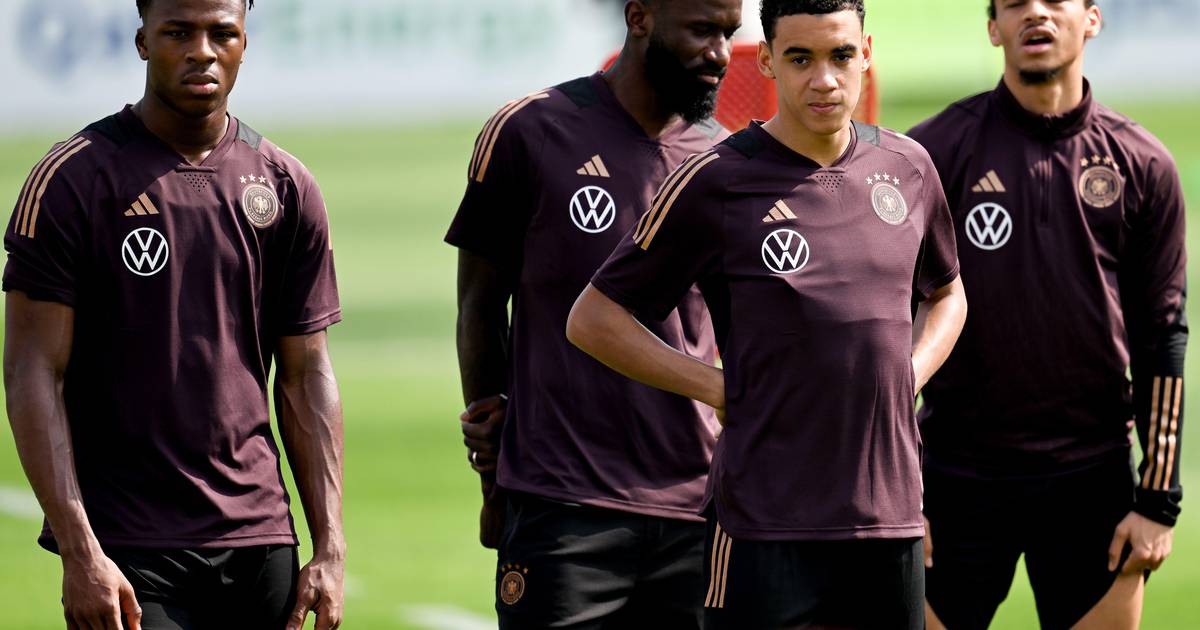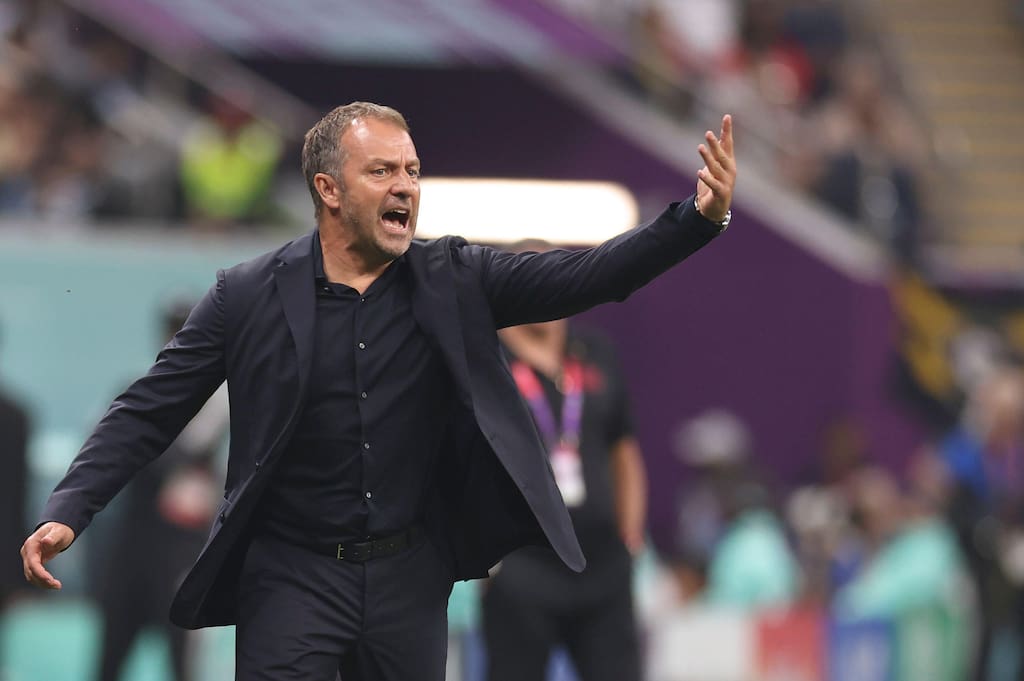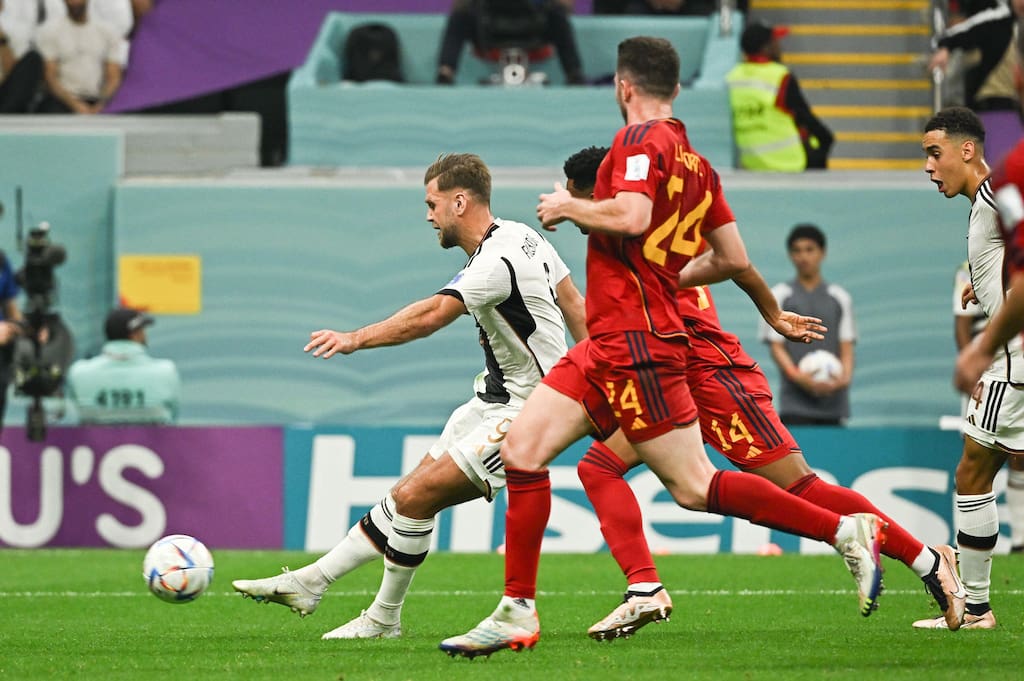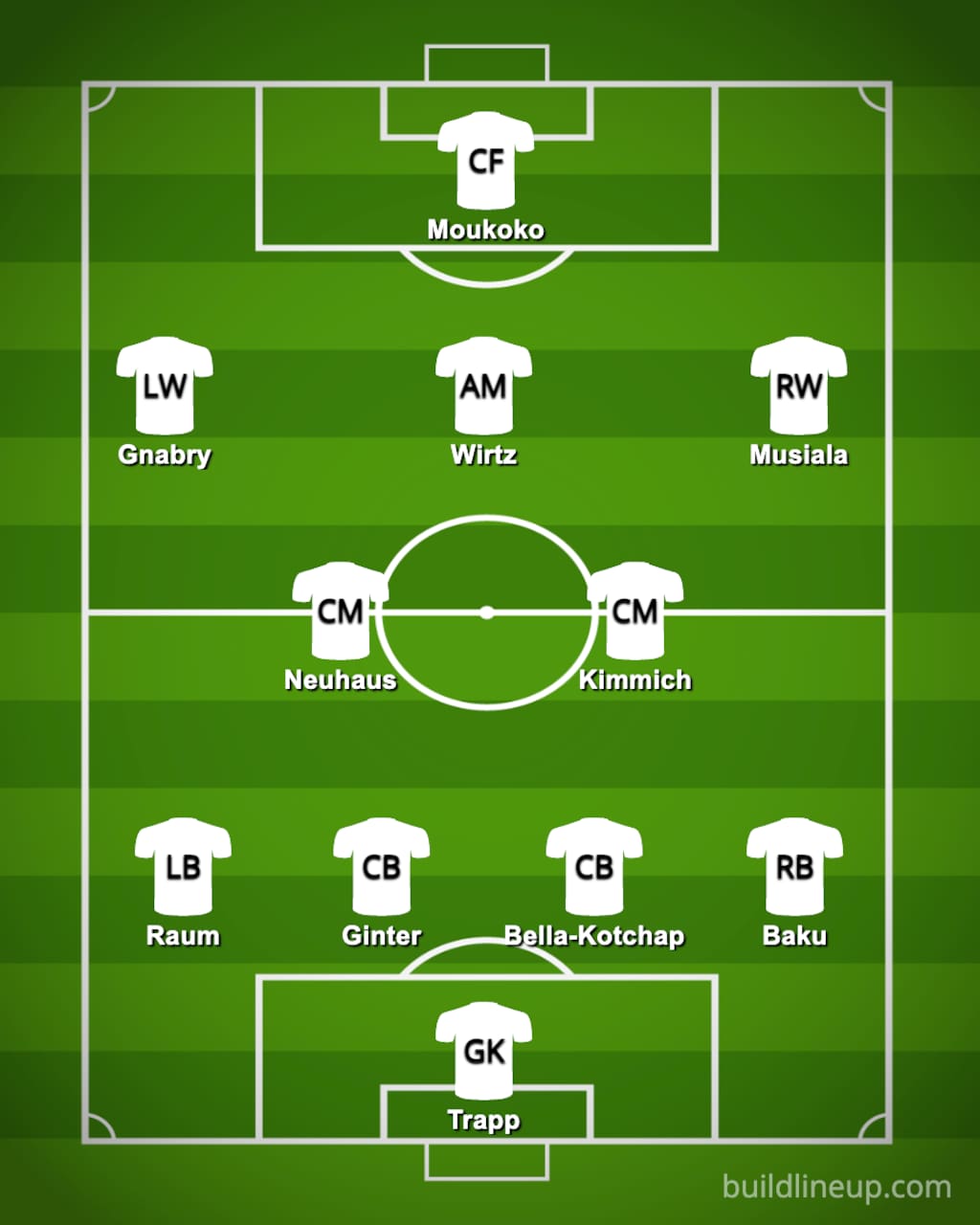When it comes to continental and global influence, few nations have had the same long-term effect as that of Germany. A notion that extends far beyond a football pitch.
Germanic tribes successfully resisted the ever-expanding might of the Roman empire before not only directly playing a hand in its inevitable collapse but also went on to traverse the North Sea and the English Channel to establish the framework for Anglo-Saxon England.
What we know as Germany today – as one unified nation – was once the nucleus of the Holy Roman Empire, which for centuries dominated the political scene in Europe. It was also the home of the protestant reformation, the printing press, the center of the Hanseatic League, while also providing mankind with endless discoveries and achievements in the arts, science, education, and yes, warfare.
For over 2,000 years Germany has been at the forefront, and much like the nation’s influence in human history, so too has Germany been a leading light on the football pitch. Winner of four World Cups, only Brazil has achieved greater success on football’s biggest stage, while Die Mannschaft has given the annals of football lore a collection of greats that few can match. Names like Fritz Walter, Franz Beckenbauer, Gerd Müller, Uwe Seeler, Lothar Matthäus, Sepp Maier, Karl-Heinz Rummenigge, Oliver Kahn, Philipp Lahm, and countless others.
Official. Oliver Bierhoff’s contract at the DFB has been terminated — he’s out of the project after disappointing World Cup results for Germany. 🚨🇩🇪 #Qatar2022 pic.twitter.com/SXiAu5F2mV
— Fabrizio Romano (@FabrizioRomano) December 5, 2022
But despite its nearly-unmatched influence on the beautiful game, Germany has once again been left reeling after what was another frustrating World Cup campaign that saw them pack their bags and vacate their lavish lodgings in Qatar while crashing out of the group stage in consecutive tournament appearances. And with national team sporting director Olivier Bierhoff falling on his sword while appropriately accepting a considerable amount of blame for the Nationalelf’s failure in Qatar, what is to transpire for Germany as the European juggernauts prepare to host Euro 2024 can make or break the program.
📰 Table Of Contents
Hansi Flick – backed but fairly?
The manner in which Germany failed to emerge from Group E after locking horns with Japan, Spain, and Costa Rica remains subject to debate. An opening loss to Japan set a catastrophic before a 1-1 draw against Spain left Germany needing a big win over Costa Rica and help elsewhere to make it out of the group; not a storyline a nation with their pedigree should be relying on.
There was already smoke in the air before a ball was kicked in anger in Qatar, however; a fact of life that seemed to be papered over rather than truly acknowledged and rectified appropriately. Germany’s campaign in the recent UEFA Nations League cycle raised plenty of questions that were once again debated over in Qatar after Flick’s outfit managed to win just one of six group matches while finishing behind Italy and Hungary.
Al Khor, Qatar. 1st Dec, 2022. Hansi Flick, head coach of Germany, reacts during the Group E match between Costa Rica and Germany at the 2022 FIFA World Cup at Al Bayt Stadium in Al Khor, Qatar, Dec. 1, 2022. Credit: Xu Zijian/Xinhua/Alamy Live News 2KYP2T0 Al Khor, Qatar. 1st Dec, 2022. Hansi Flick, head coach of Germany, reacts during the Group E match between Costa Rica and Germany at the 2022 FIFA World Cup at Al Bayt Stadium in Al Khor, Qatar, Dec. 1, 2022. Credit: Xu Zijian/Xinhua/Alamy Live News (Alamy Stock Photo)
Concerns grew exponentially again when they struggled to overcome lowly Oman in a 1-0 World Cup warm-up friendly, which Flick played off as routine while the result was deemed to be trivial, and rather, it was about fitness and finding a rhythm.
Between warning signs going unheeded, and the overall manner that Germany failed to achieve minimal target gains during the tournament itself, that is more than enough justification to part ways with Flick who, to his credit, is a Champions League-winning manager with Bayern Munich and was on Joachim Löw’s staff, learning much from the iconic manager irrespective of his eventual failing during the waning years.
Instead, the Deutscher Fußball-Bund have stuck by their man and doubled down on his ability to command on the touchline to greater success with Euro 2024 just around the corner. Germany – as host nation and without a qualifying campaign – may well have struggled to bed in a new head trainer with just friendlies alone, and more to the point, who would have replaced him? The brightest minds in the German coaching collective are all sitting in prominent positions; mainly Jürgen Klopp in his seat of power on Merseyside, and Julian Nagelsmann residing comfortably at Säbener Straße.
Despite Thomas Tuchel currently still on the unemployment line, his penchant for falling out with the powers that be during a successful career in club management likely would have not sat well with the DFB, and with no other prominent German names available, Flick may have benefitted by timing more than anything.
Questionable selection calls & personal bias
However, it does stand to note that Germany did manage the highest xG of any nation during group stage play in Qatar, which does speak to some “good bits” to take away from abject overall failure. But those bits, at least in my estimation, only overshadow a myriad of head-scratching decisions that Flick stubbornly stood by.
Germany boasting the top xG of the group stage certainly reads well, but for all the chances they created, four of their six goals in the opening phase of the tournament game against a poor Costa Rica, rather than when it really did matter most against both Japan and Spain.
The decision to utilize Thomas Müller as the starting option in the number 9 role remained ponderous at best. The much-heralded “Raumdeuter,” who to his credit has had a sensational career and club and international level, is not – nor has ever been – a center-forward. His inability to offer a real focal point in the attack, challenge aerially or offer the pace to truly lead the press was all exposed. Shockingly, Germany’s most-inform striker, SV Werder Bremen hitman Niclas Füllkrug, remained on the bench and was only used as a substitute.
This is probably Flick’s biggest blunder, where he clearly wanted to rely on trusted players during his Bayern days rather than put his faith in a striker like Füllkrug who did not bring the same lineage but was nevertheless his best option to lead the line. Coming into Qatar, Füllkrug’s 10 Bundesliga goals were second in the league only to Christopher Nkunku, and also good enough for the top ten among all players in Europe’s top five leagues. Not calling on your in-form striker during tournament play is an offense that deserves the sack in and of itself.
Niclas Fullkrug of Germany during Spain v Germany match of the Fifa World Cup Qatar 2022 at Al Bayt Stadium in Doha, Qatar on November 27, 2022. Photo by Laurent Zabulon/ABACAPRESS.COM 2KNYWT2 Niclas Fullkrug of Germany during Spain v Germany match of the Fifa World Cup Qatar 2022 at Al Bayt Stadium in Doha, Qatar on November 27, 2022. Photo by Laurent Zabulon/ABACAPRESS.COM (Alamy Stock Photo)
It is even more damning that Füllkrug was the lone goalscorer in the 1-0 win over Oman, and his heroics off the bench against Spain is the very reason Germany even were able to draw level with Luis Enrique’s men. To then not call on Füllkrug against Costa Rica – who eventually was subbed on and once again proved decisive – was frustrating by any measuring stick.
Building on that, Flick started the tournament by calling upon Niklas Süle to be deployed at right-back while remaining with Antonio Rüdiger and Nico Schlotterbeck as the central pairing. Süle was quickly moved out of that zone after the loss to Japan, while Schlotterbeck was dropped from the XI outright. Both rely on an out-of-form center-back, and then an immobile center-back squeezed into a right-back role also smacks of faith over fit.
Unless Flick is prepared to jettison his bias to a large degree and begin to select teamsheets where all the pieces fit, persisting with him on the touchline may prove a mistake.
Talented youth and how Germany could line-up in 2024
With Euro 2024 less than two years away, many will be left to wonder how Flick intends to build his squad for the next international cycle and whether or not he will look to keep the likes of Thomas Müller and Manuel Neuer in the mix.
Thankfully for Germany, the European powerhouse continues to boast one of the best youth production pipelines found anywhere on the continent, with many top young talents in the Bundesliga readily available to be tapped into.
The technical grace and level of consistency shown by Bayern Munich wunderkind Jamal Musiala this winter is proof positive that the age-old adage of “if you’re good enough, you’re old enough” remains valid on the international stage, with many young squads also performing admirably in Qatar, with the likes of Ghana and the United States both performing admirably against top national sides like England, Portugal, and South Korea.
Apart from Musiala, Flick already included U21 talent in his 26-man squad in the vein of Borussia Dortmund pair Karim Adeyemi (20) and Youssoufa Moukoko (18) as well as Southampton defender and former VfL Bochum standout Armel Bella-Kotchap (21). Beyond that, the likes of David Raum, Nico Schlotterbeck, and Kai Havertz are all still 24 or younger, while Germany was also stripped of the availability of the wildly gifted Bayer Leverkusen product Florian Wirtz (19), who was slated to make it on the plane this winter if not for serious injury last season that kept him out of contention.
Potential preferred XI under Hansi Flick at Euro 2024
Possible 26-man squad under Hansi Flick for Euro 2024
Still, others will be in their prime come the summer of 2024, with Timo Werner, Lukas Nmecha, Florian Neuhaus, Anton Stach, Serge Gnabry, Leroy Sané, Julian Brandt, Leon Goretzka, and Joshua Kimmich all ranging between the ages of 26-29 come tournament play. All of this is not to mention the wealth of talent that is currently populating Germany’s U21 ranks at the international level, with many of those players already logging big minutes in the Bundesliga or in other top club competitions in Europe.
As long as Flick is willing to deploy the best possible XI with the best possible tactical schematic, the ingredients are there for Germany to set out on the front foot in 2024 with the 2026 World Cup in mind. But will he?















